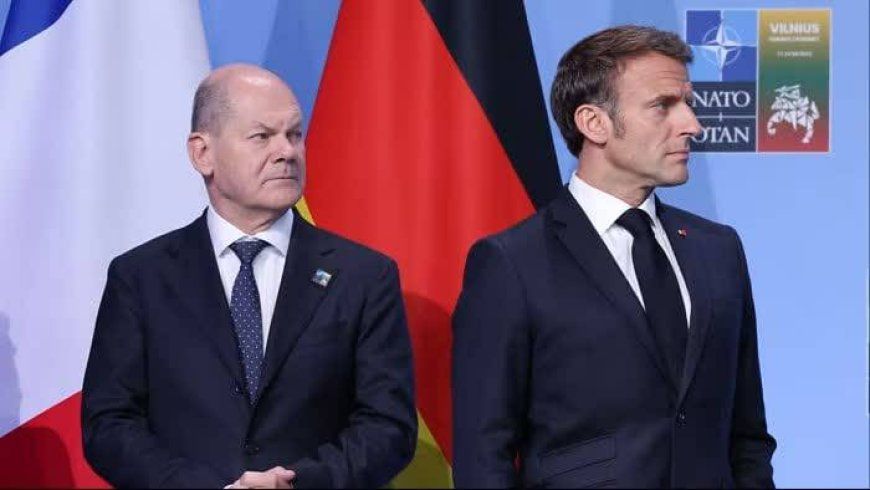Scholz vs. Macron: How France Is Disrupting Peace Efforts in Ukraine?

Today, the conflict in Ukraine has metamorphosed into a horrible calamity for Europe, with its protracted nature and substantial toll on the continent. As the military dynamics of the conflict continue to shift, Moscow has gained the upper hand not only on the battleground but also in the diplomatic arena. On the other hand, European governments and NATO find themselves embroiled in disparate situations, recognizing the imperative for a viable resolution to the ongoing dilemma. This spectrum ranges from the unequivocal call from Pope Francis urging Ukraine to consider the white flag over the dangerous postures adopted by France to Hungary's pervasive opposition to the continuation of war with the Kremlin.
European states, aligned in support of Ukraine, appear fatigued by the ongoing strife, which is palpable in various facets, such as the tardiness in supplying military aid to the regime in Kyiv and the protracted delays in furnishing the requisite money for arms procurement, provoking protests from Volodymyr Zelenskyy and his cohorts.
Despite this weariness, European leaders tread cautiously vis-à-vis Russia, harboring deep-seated apprehensions of antagonizing their giant Eastern neighbor. Notably, French President Macron's equivocation on the Ukrainian matter, evident in his recent remarks concerning the potential deployment of NATO or French troops to Ukraine, has elicited multifarious interpretations, sparking domestic and external opposition. Opposition leader Marine Le Pen criticizes Macron, portraying him as a warmonger disconnected from reality and the French populace. Such domestic censure finds resonance on the international stage, with European leaders expressing discontent with Macron's stance and even the United States rebuffing the notion of deploying its personnel to Ukraine.
As a matter of fact, Macron's statements unveils schisms within NATO rank as German Chancellor Olaf Scholz’s hold on his conciliatory stance and reluctance to commit troops to Ukraine underscore underlying differences between the two European powers. Both the European Union and NATO are acutely cognizant of the ramifications of a full-scale confrontation with Moscow, fearing a military conflagration and, to put it another way, a WWIII, should Russia achieve an outright victory in Ukraine. Despite Putin's assurances to the contrary, emphasizing Russia's aversion to a war of attrition, France's unconstructive stance remains unshared by other European leaders, with strategy leaning more towards coercing Russia through arms provisions to Ukraine, hoping to compel a Russian retreat.
Moreover, France's advocacy for Ukraine's NATO membership exacerbates tensions within the alliance. While Europe's comprehensive support initially emboldened Ukraine, it now faces the grim specter of a protracted war and more devastation, prompting a quest for peaceful resolution. France, meanwhile, appears intent on leveraging its military power to bolster its image as a steadfast ally, while attributing any setbacks in advancing its Ukrainian agenda to opposition from Berlin, Washington, and other fellow NATO members. In fact, France's strategic gambit, whether deliberate or inadvertent, constitutes an extremely dangerous maneuver. If successful, it would reaffirm France’s standing within the international arena and secure a pivotal role in shaping post-war Ukraine. Concurrently, it would undermine NATO solidarity, spotlighting discord among member states and insinuating a lack of collective courage.
In conclusion, Macron's hostile approach towards Russia, marked by ambiguous stances and empty rhetoric, risks exacerbating tensions and potentially igniting a larger conflict in Europe. While other European leaders tread cautiously, recognizing the complexities and dangers inherent in the situation, Macron's insistence on a confrontational stance undermines collective efforts towards peace and stability. By prioritizing assertive posturing over diplomatic resolution, Macron not only jeopardizes the security of the region but also undermines the unity and cohesion of NATO. It is imperative for European leaders to pursue prudent and constructive approaches to address the crisis in Ukraine, ensuring that dialogue and diplomacy prevail over the specter of further conflict.













































